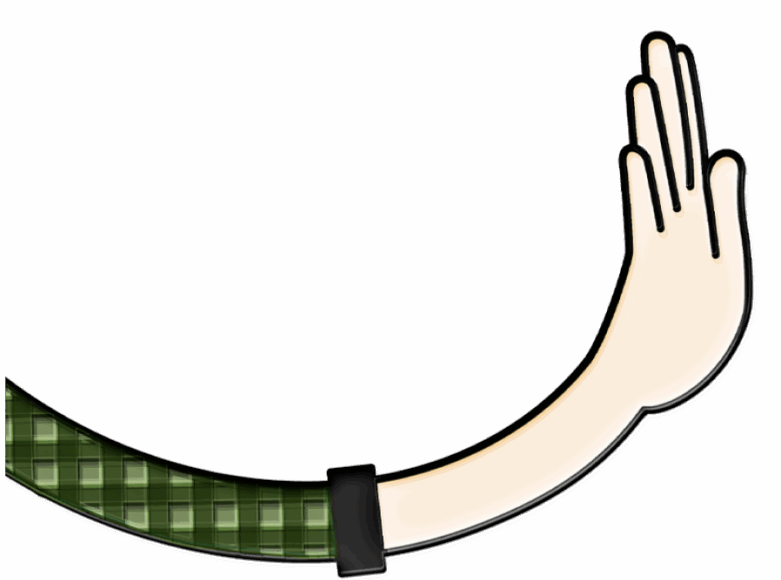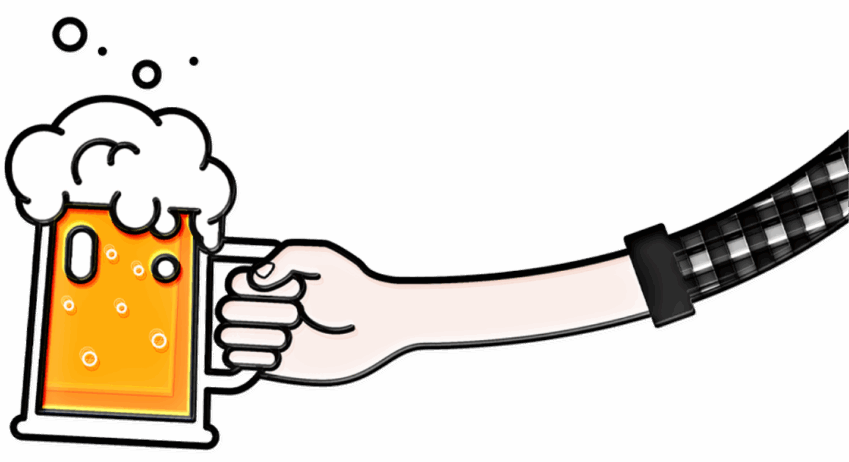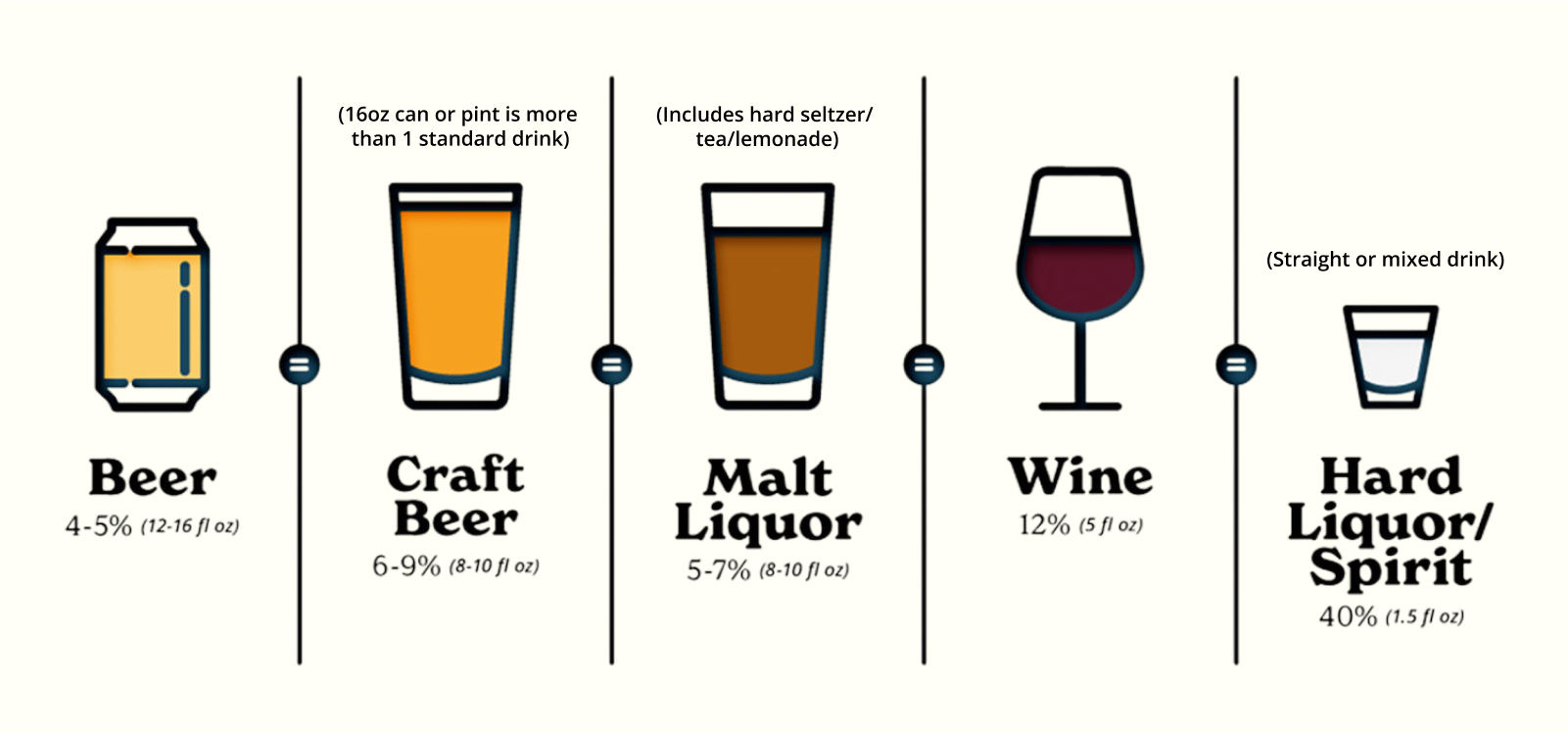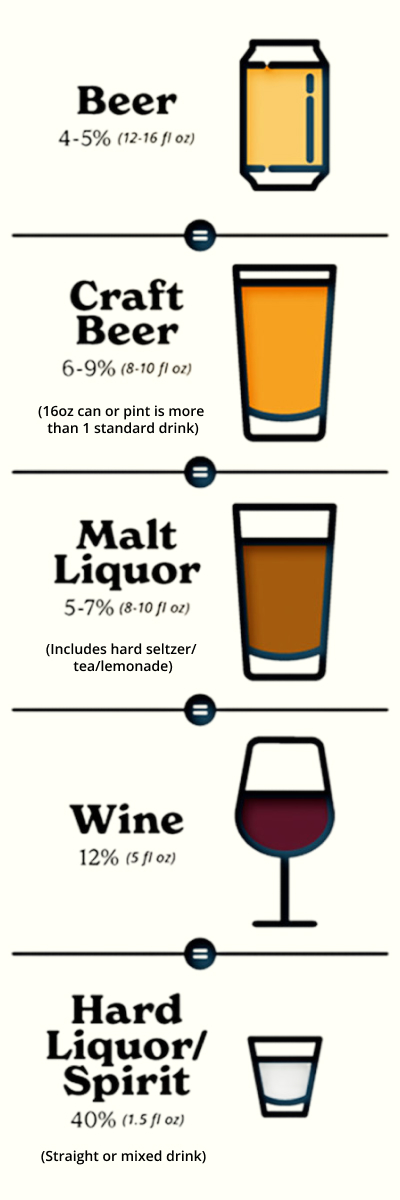The Sipping Point


DO YOU KNOW
Your Sipping Point?
Your sipping point is the line between drinking a lower-risk amount of alcohol and drinking too much. Curious where you land? Take this quick, confidential quiz to see how your habits compare to others.
Know the health guidelines and risks when it comes to drinking alcohol.
Not all drinks are created equal. A single glass, can, or bottle might contain more alcohol than you think. Tap or click each section below to learn more.
The amount of liquid in your glass, can, or bottle does not match up to how much alcohol is actually in your drink. Why is that important to know?
- Different types of beer, wine, or liquor can have varying amounts of alcohol content.
- Alcohol may be packaged in everything from bottles to test tubes to freeze pops to boxes to pouches.
- Understanding helps you track how much alcohol you are having in each drink.
A drink should always be measured in ounces. Even though drinks come in different sizes, below are examples of ONE standard drink:


For adults 21 and over who choose to drink, it’s recommended that women have no more than 1 drink a day, and men have no more than 2 drinks a day.
Some people who should not drink any alcohol include –
- People under age 21
- People who are pregnant
- People with certain medical conditions
- People who are taking certain prescription or over the counter medications
- People who are recovering from alcohol use disorder
Think you’re having just one drink? The actual alcohol content might surprise you. Try the calculator to find out what’s really in your glass.
Learn more about how binge drinking impacts your health, mood, money, and more.
Whether you drink once in a while or regularly, it’s important to know the health risks of drinking alcohol. Binge drinking is consuming a large amount of alcohol in a short amount of time. (Source)
Excessive drinking includes:
- Binge drinking
- Women having four or more drinks in a two-hour period
- Men having five or more drinks in a two-hour period
- Heavy drinking
- Women having eight or more drinks per week
- Men having 15 or more drinks per week
- Any drinking by pregnant people
- Any drinking by people younger than age 21
- Binge drinking can lead to serious health problems as well as relationship, family, employment, and financial problems.
Binge drinking can have immediate effects that increase your risk for serious health problems including:
- Nausea, vomiting, choking
- Acid reflux
- Diarrhea
- Alcohol poisoning
- Hangover
- Accidents
- Relationship issues
- High blood pressure
- Dehydration
- Weight gain
- Blackouts
- Increased risk of injury
- Increased risk of OUI
- Increased risk of Sexually Transmitted Infection
- Increased risk of death
Binge drinking over a long period of time can increase your risk for developing chronic diseases and other serious health problems including:
- Alcohol dependence
- Addiction
- Liver disease
- Pancreatitis
- Kidney failure
- Malnutrition
- Chronic high blood pressure
- Anxiety
- Depression
- Memory loss
- Increased risk of
- Stroke
- Injury
- At least 7 types of cancer
- Suicide
- Job loss
- Death
- OUI
Drinking has a sneaky way of taking over your life. Learn about how alcohol can affect relationships, family, employment, and even finances.
Drinking alcohol has a sneaky way of taking over your life and causing harm. Some financial reasons why you should cut back on drinking may include:
- Spending too much on drinks
- Paying off an OUI
- Paycheck never lasting until the next one
- No cash for fun activities with friends or family
Drinking alcohol can impact your energy, memory, focus, productivity, reliability, and work relationships leading to short term and long-term issues at your workplace that could include:
- Running late
- Missing work
- Off your game – making more mistakes, less energy
- Losing your job
Drinking alcohol can have harmful and lasting effects on your personal and social relationships. It may be time to cut back on drinking if you’ve experienced:
- Choosing drinking over family
- Losing old friends
- Setting an example of heavy drinking for kids and others in your life
- Needing alcohol to have a good time
Drinking alcohol can cause many legal issues that are costly, not just in terms of money, but you could also experience increased stress within your family or job due to any of these legal problems:
-
- Operating under the influence arrest
- Jail time
- Court-ordered alcohol treatment
- Loss of custody of children
If you think you’re drinking too much, it’s not too late to make changes.
A night out doesn’t have to cause regrets and a hangover. These tips can help you pace yourself and stay within your Sipping Point:
- Space out your drinks
- Drink a large water between alcoholic beverages
- Measure your pour
- Read menus to understand alcohol content and serving sizes
- Keep track of your drinks
- Try new alcohol-free drinks or mocktails
It’s important to keep in mind if you are heading out to a new environment, drinking alcohol will affect you more. Even if you drink the same amount of alcohol as usual, your body isn’t conditioned to expect a depressant in this environment which means you reach your Sipping Point faster.
Consider planning alcohol-free activities with friends and family. Offering activities without alcohol is inclusive and welcoming to those who are underage, pregnant, or choose not to drink. Here are a few fun alternatives to consider:
- Visit a park
- Enjoy a picnic lunch outside with pre-made mocktails
- Take a hike up one of Maine’s many beautiful peaks or trails
- Try something new like paddle boarding or axe throwing
- Take up sledding or snowshoeing
- Compete in a friendly game of horseshoes or cornhole
- Volunteer for your favorite organization
We all need to find ways to manage stress and release tension. Building mindful, healthy habits can help replace the need for an alcoholic drink after work or on the weekends. Here are some relaxing options to consider:
- Go for a walk outside
- Turn up your favorite playlist
- Try an exercise video
- Play with your kids or the dog or both
- Vent to a friend
- Dance it out
- Read or listen to a book
- Practice self-care
- Write a journal entry
- Listen to a podcast
- Plant or weed your garden
- Learn a new craft
- Cook a new recipe
- Share alcohol-free mocktails with friends
Remember: Even though you may be drinking to feel good in the moment, it can’t ever provide true self-esteem. And in some cases, it can actually undermine your ability to feel positively about yourself.
It’s not too late to make changes if you think you’re drinking too much alcohol. Cutting back on drinking could help you:
- Improve your health
- Improve your sleep
- Lose weight
- Save Money
- Avoid hangovers or illness
- Perform better at work
- Repair a relationship
- Avoid serious legal problems
Ready To Cut Back or Quit Drinking?
If you or someone you care about needs help with alcohol dependence, talk with a doctor or health provider. Don’t tackle this alone.
Find free, confidential help now:
Help and support is here 24/7.